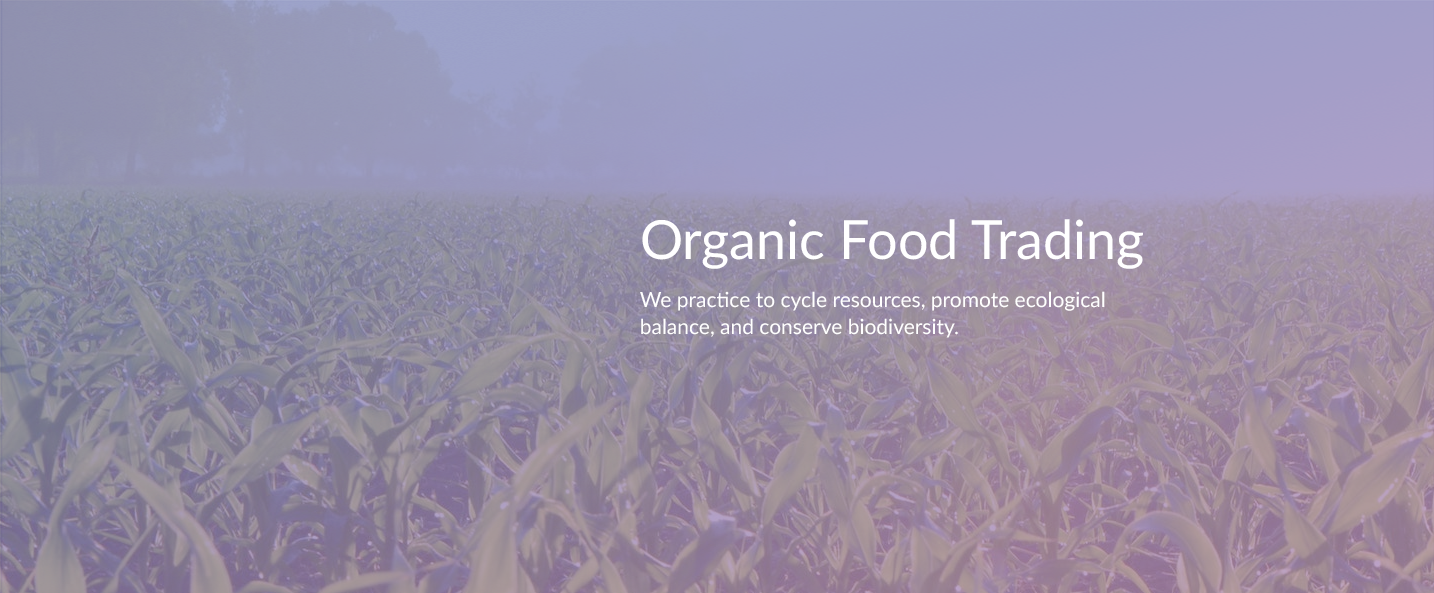
Organice Food Trading & Supply
Organic food is food produced by methods that comply with the standards of organic farming. Standards vary worldwide, but organic farming in general features practices that strive to cycle resources, promote ecological balance, and conserve biodiversity. Organizations regulating organic products may restrict the use of certain pesticides and fertilizers in farming.
Currently, the European Union, the United States, Canada, Mexico, Japan, and many other countries require producers to obtain special certification in order to market food as organic within their borders. In the context of these regulations, organic food is produced in a way that complies with organic standards set by regional organizations, national governments and international organizations. Although the products of kitchen gardens may be organic, selling food with a organic label is regulated by governmental food safety authorities, such as the US Department of Agriculture (USDA) or European Commission (EC).
How your food is grown or raised can have a major impact on your mental and emotional health as well as the environment. Organic foods often have more beneficial nutrients, such a antioxidants, than their conventionally-grown counterparts and people with allergies to foods, chemicals, or preservatives often find their symptoms lesson or go away when they eat only organic foods.
Organic product contains fewer pesticides. Chemicals such as fungicides, herbicides, and insecticides are widely used in conventional argriculture and residues remain on (and in) the food we eat.
Organic food is often fresher because it doesn't contain preservatives that make it last longer. Organic product is often (but not always, so watch where it is from) produced on smaller farms near where it is sold.
Organic farming is better for the environment. Organic farming practices reduce pollution, conserve water, reduce soil erosion, increase soil fertility, and use less energy. Farming without pesticides is also better for nearby birds and animals as well as people who live close to farms.
Organic food is GMO-free. Genetically Modified Organisms (GMOs) or genetically engineered (GE) foods are plants whose DNA has been altered in ways that cannot occur in nature or in traditional crossbreeding, most commonly in order to resistant to pesticides or produce an insecticide.
We sell Organic food related items through super stores chains, and source these items mainly from South Africa.
